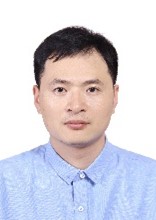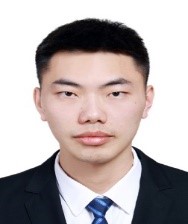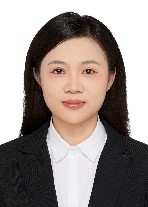Digital Model-based Quality Consistency Design
Technique for Electromechanical Components
基于数字模型的机电组件质量一致性设计技术
With the acceleration and deepening of the process of human exploration for deep space, deep earth, and deep sea, the issue of quality fluctuations in electromechanical components is becoming increasingly prominent. Traditional quality consistency design methods based on analytical models and physical prototypes struggle to meet the optimization effectiveness and development cycle requirements for the quality consistency design of electromechanical components. The rapid development of computational science has led to the maturation of finite elements in computers to build a digital model that is identical to the physical prototype. Digital models offer advantages such as high computational accuracy, low cost, and visualization capabilities, enabling the accurate identification of crucial design parameters and manufacturing process parameters that affect the quality consistency of electromechanical components.Further, through multi-objective robust parameter design and tolerance design, the crucial design parameters and manufacturing process parameters are quantitatively regulated, and the quality consistency of electromechanical components can be greatly improved. This special topic aims to share cutting-edge research results in the quality consistency design of electromechanical components based on digital models, and to promote the engineering application of these results.
随着人类探索深空、深地、深海进程的加速和深入,机电组件质量波动问题日益凸显。传统基于解析模型、物理样机的质量一致性设计方法,优化效果、研制周期难以满足机电组件质量一致性设计的需求。随着计算科学的快速发展,在计算机中建立一个与物理样机完全一致的数字模型的有限元已日渐成熟。数字模型具有计算精度高、成本低、可视化等优点,能够准确辨识影响机电组件质量一致性的关键设计参数和制造工序参数。进一步通过多目标稳健性参数设计和容差设计,定量调控影响机电组件质量一致性的关键设计参数和制造工序参数,大幅提升机电组件的质量一致性。本专题旨在分享基于数字模型的机电组件质量一致性设计方向的前沿研究成果,促进相关成果的工程应用。
Related topics: Some topics that are relevant may include, but are not limited to: multi-physics field digital modelling; multi-physics field rapid parallel computing; robust parameter design; robust tolerance design; multi-objective optimization.
相关主题包括但不限于:多物理场数字建模;多物理场并行快速计算;稳健性参数设计;稳健性容差设计;多目标优化。
Chair: Hao Chen, Harbin Institute of Technology, China

Hao Chen is currently an assistant research fellow with the school of electrical engineering and automation, Harbin Institute of Technology. He received his doctoral degree in electric machine & electric apparatus in 2022 from Harbin Institute of Technology, China. He was a visiting scholar with the Department of Industrial Systems Engineering and Management, National University of Singapore from Jan. 2021 to Oct. 2022, supervised by Prof. TANG Loon Ching. His research interests include life-cycle quality consistency design for electromechanical components. He is currently the author of more than 15 journal papers in the field of quality consistency design and robust design.(E-Mail: hao@hit.edu.cn)
陈昊,2022年在哈尔滨工业大学获得电机与电器专业博士学位,现为哈尔滨工业大学电气工程及自动化学院助理研究员。2021年1月至2021年10月在新加坡国立大学工业工程与系统管理系联合培养,合作导师为董润祯教授。主要研究方向为机电组件全寿命周期质量一致性设计,在质量一致性设计和稳健性设计领域主流期刊发表了15篇论文。
Chair: Bokai Zheng, Fuzhou University, China

Bokai Zheng is currently a lecturer at the College of Electrical Engineering and Automation, Fuzhou University. He received his doctoral degree in electrical engineering in 2023 from Harbin Institute of Technology, China. He was a visiting scholar with the Energy Department, Politecnico di Milano, from Jan. 2019 to Jan. 2020. His research interests include reliability modeling and remaining useful life prediction for electronic systems. He has published more than 10 peer-reviewed journal papers. (E-Mail: Zhengbokai@fzu.edu.cn)
郑博恺,2023年在哈尔滨工业大学获得电气工程专业博士学位,现为福州大学电气工程与自动化学院讲师,曾于2019-2020年在米兰理工大学能源系访学。主要研究方向为电子系统的可靠性建模和剩余寿命预测,已在质量与可靠性领域主流期刊发表10余篇论文。
Chair: Lanxiang Liu, Harbin Institute of Technology, China

Lanxiang Liu is currently an assistant research fellow with the School of Electrical Engineering and Automation, Harbin Institute of Technology. She received her doctoral degree in Electrical Engineering in 2023 from Harbin Institute of Technology. She then obtained PhD degree in Energy and Nuclear Science and Technology from Politecnico di Milano in 2024. Her main research interests focus on the structural dynamics and bounce control of electrical appliances, as well as quality optimization design and consistency control. She has published more than 10 peer-reviewed journal papers in the field of dynamics and quality control. (E-Mail: lanxiangliu@hit.edu.cn)
刘兰香,2023年在哈尔滨工业大学获得电气工程专业博士学位,2024年在米兰理工大学获得能源与核科学技术专业博士学位,现为哈尔滨工业大学电气工程及自动化学院助理研究员。主要研究方向为电器结构动力学与弹跳控制、质量优化设计与一致性控制,目前已在动力学与质量控制主流期刊发表论文10余篇。
Submission Portal
If you are interested in the special session, please submit
your paper or abstract here
https://www.zmeeting.org/submission/srse2025 and choose special session 8.
For any questions, please mail the organizers or conference secretary srse@sciei.org.
© SRSE 2019-2025 | Changchun, Jilin, China | For inquery: srse@sciei.org. For official notice: srse_official@163.com